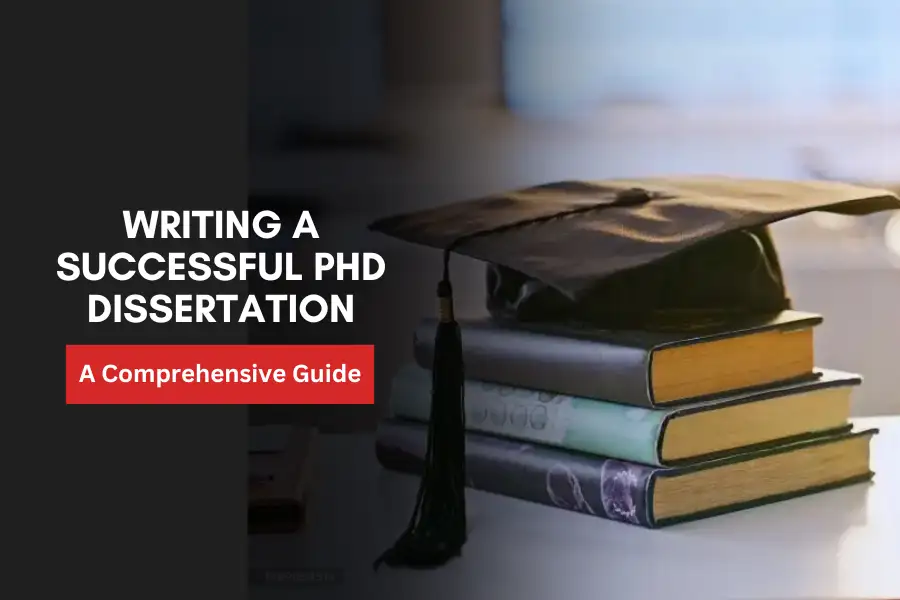PhD Thesis : Structure, Significance, and Key Components
A PhD thesis is the culmination of a doctoral student’s research journey. It is an academic document that presents the student’s unique research, findings, and contribution to a specific field of study. Whether you’re just starting your doctoral journey or nearing the end, understanding how to write a PhD thesis can significantly impact the quality of your research work. In this guide, we will explore the structure, significance, and key elements of a PhD thesis.
Table of Content
What is a PhD Thesis?
A PhD thesis is an in-depth academic document that showcases the research conducted during a doctoral program. It is more than just a long essay—it’s a reflection of a student’s deep engagement with their field, demonstrating original thought, analysis, and contributions to existing knowledge. A PhD thesis addresses important questions within a particular discipline, often filling gaps in current research. It is a formal presentation of the research process, methods, and findings, typically ranging from 60,000 to 100,000 words.
Importance of a PhD Thesis
- Contribution to Knowledge: The primary purpose of a PhD thesis is to contribute new understanding to a specific academic field. It often addresses gaps in existing research, explores unanswered questions, or offers new perspectives on established theories.
- Showcasing Research Skills: The thesis demonstrates a student’s ability to conduct independent, systematic, and rigorous research, which is a critical skill for academic and professional credibility.
- Professional and Academic Milestone: Completing and defending a PhD thesis opens doors to careers in academia, research institutions, government agencies, and the private sector.
Deep Dive into Specialization: A PhD thesis allows the researcher to explore a specialized area in depth, becoming an expert in that subject.
How Long is a PhD Thesis?
The length of a PhD thesis typically ranges from 60,000 to 100,000 words, though this can vary based on the field of study and university guidelines. Scientific theses often focus more on experiments and data, resulting in shorter lengths, while humanities theses may be longer due to more extensive analysis and literature reviews. It is essential to check with your department or advisor to understand specific length requirements.
PhD Thesis Structure
- Title Page: Includes the thesis title, your name, the degree sought (PhD), the institution, and the submission date.
- Abstract: A concise summary (250-300 words) of the research problem, methodology, key findings, and conclusions.
- Acknowledgments: An optional section where you thank those who supported you during your PhD journey.
- Table of Contents: An outline of the thesis structure, including chapters, subchapters, and appendices.
- Introduction: The introduction sets the stage for the thesis by introducing the research topic, explaining its significance, presenting the research questions, and outlining the structure of the thesis.
Literature Review: This section reviews existing research in your field, identifying gaps your study aims to address. It demonstrates your understanding of the subject and frames your research in a scholarly context.
How to Write a Literature Review in a PhD Thesis:
- Start Broad: Begin by discussing broad themes before narrowing down to issues directly related to your research.
- Identify Gaps: Highlight what previous research has missed, explaining how your study addresses these gaps.
- Use a Thematic or Chronological Approach: Organize the review by theme or historical development.
- Critically Analyze Sources: Don’t just summarize—critique the methodologies, approaches, and conclusions of previous studies.
- Methodology: This section explains the research methods used to address your research questions. Whether quantitative, qualitative, or mixed methods, it should justify the chosen approach and explain how the data was collected and analyzed.
- Results: The results section presents the data obtained from your research, focusing on the key findings.
- Discussion: In this section, you interpret the results, discuss their implications, and compare them with existing literature. You also suggest areas for further research.
- Conclusion: Summarize the research and its findings, emphasizing their significance in addressing the research problem. Mention any limitations and suggest directions for future studies.
- References/Bibliography: List all the academic works cited in your thesis, formatted according to the required citation style (APA, MLA, Chicago, etc.).
Appendices: Include supplementary material such as raw data, surveys, or interview transcripts that are too detailed for the main body of the thesis.
Key Elements of a PhD Thesis
- Clarity and Focus: Every chapter should have a clear purpose. Avoid jargon and be concise.
- Original Contribution: A PhD thesis must offer original research. It should contribute new insights or evidence to the field.
- Strong Research Questions: Well-defined research questions are essential. They should be specific, achievable, and relevant to current debates in your field.
- Systematic Approach: Your research methods should be clearly defined, detailed, and reproducible by others in the field.
Consistent Argument: The thesis should present a logically developed argument, supported by evidence from literature and your data.
PhD Thesis Format
While each institution may have its own guidelines, the general formatting of a PhD thesis includes:
- Double spacing
- Standard font (e.g., Times New Roman)
- Margins of at least 1 inch on all sides
- A consistent referencing style (APA, MLA, Chicago, etc.)
Ensure that your headings, subheadings, numbering, and page layouts are consistent throughout the document.
How Difficult is a PhD Thesis?
Writing a PhD thesis is undoubtedly challenging. The difficulty lies in the level of originality required, the complexity of the research, and the rigor of analysis. Successful completion requires time management, critical thinking, and perseverance. However, with careful planning, mentorship, and a solid understanding of research methods, it is certainly achievable.
What Are the Requirements for a PhD Thesis?
The essential requirements for a PhD thesis include:
- Novel Research: Your work must contribute new insights or perspectives to the field.
- Thorough Literature Review: Show a comprehensive understanding of the existing research.
- Robust Methodology: Clearly define and justify your research methods.
- Logical Structure: Organize your findings and arguments in a coherent manner.
Academic Rigor: Maintain objectivity, use appropriate language, and cite sources
Conclusion
A PhD thesis is a significant academic achievement that reflects a researcher’s contribution to their field. While the writing process can be demanding, understanding the structure and requirements of the thesis can make the journey smoother. A well-crafted PhD thesis not only advances your academic career but also contributes valuable knowledge to the academic





